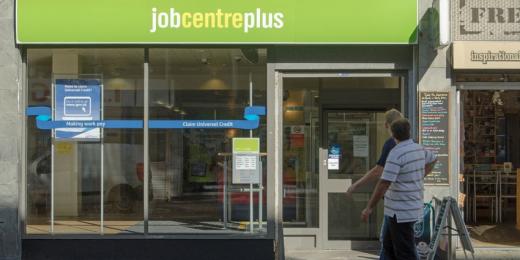EU Migrants Face Clampdown on In-Work Benefits

Once again, EU migrants and benefits are in the news. Prime Minister, Theresa May has announced that senior government officials are looking to revive her predecessor, David Cameron’s plans to stop newly arriving EU migrants claiming public benefits.
Because we are not a newspaper and do not need to concern ourselves with ‘click-bait’, it is made clear in the headline of this article that the government is talking about ‘in-work’ benefits. It is a total fallacy that EU nationals are entitled to walk into a Job Centre and claim Job-seekers Allowance, Social Housing and other benefits as soon as they set foot in the UK.
Although many lobby groups and certain newspapers would have you think otherwise.
Once again, the Immigration solicitors are urging that the best move EU nationals can make is to solidify their residency rights by obtaining a permanent residency Card and British Citizenship.
EU migrants and benefits – the facts
Tougher rules came into force in March 2015 stating that new EU migrants who arrive in the UK cannot claim any benefits until they have started work.
They must also have lived in the UK for three months before putting in any benefit claims.
The only benefits they can claim after three months are:
- Income-based Jobseeker's Allowance
- Child Benefit
- Child Tax Credits
Figures from the Department of Work and Pensions, obtained by The Times in 2015, revealed the government paid out:
- £30 million in child benefit in 2014 to families with children living abroad - of these, two third of claimants were Polish
As of February 2015, DWP figures show there were 113,960 EU nationals claiming benefits (out of 5 million welfare claimants).
Of these:
- 21,460 were claiming Jobseeker's allowance
- 17,000 were claiming Employment and support and incapacity benefits
- 6,000 were claiming carer's allowance
- 4,000 were claiming lone parent allowance
- 3,900 were claiming disability allowance
After three months of receiving public funds such as the Jobseeker’s allowance, EU migrants must undergo a 'genuine prospect of work' test.
If they do not have an imminent job offer they will lose their benefits and their right to reside in the UK as a jobseeker.
Immigration solicitors also note that some EU migrants may also have to pass a ‘habitual residence test’ if they wish to apply for some means-tested benefits. It is recommended that the best legal advice is sought to ensure that this is passed successfully.
David Cameron’s proposal for cutting EU migrants access to benefits
In late 2015, then Prime Minister, David Cameron proposed an EU ‘emergency brake’ deal. Under the agreement, EU migrants would have to contribute to the economy for four years before they could qualify for in-work benefits or social housing.
This deal was nullified following the vote on 23rd June 2016 to leave the EU.
The plan for revival of the ‘emergency brake’ on EU migrants access to benefits
Theresa May is now looking to resurrect the ‘emergency brake’ scheme, with sources saying that it will reduce the tax credit bill and may deter some EU migrants from coming to the UK. However, studies from 2016 clearly showed that the ability to claim in-work benefits had little (if any) impact when an EU national was weighing up whether or not to come to the UK. A vast majority come to Britain to work. Benefits are the last thing on their mind.
Some Ministers say limits on EU migrants will improve Employment prospects for British citizens.
In October, Ms May appeared to affirm this view, telling her party conference, “If you’re one of those people who lost their job, who stayed in work but on reduced hours, took a pay cut as household bills rocketed, or – and I know a lot of people don’t like to admit this – someone who finds themselves out of work or on lower wages because of low-skilled Immigration, life simply doesn’t seem fair.
“It feels like your dreams have been sacrificed in the service of others. So change has got to come.”
Conclusion
According to figures from the HMRC, EU migrants more than pay their way in taxes. Those who arrived in Britain between 2011 and 2015 paid £2.54 billion more in income tax and national insurance than they received in tax credits or child benefit in 2013-14. The Office of Budget Responsibility has estimated that their labour contribution is helping to grow the economy by an additional 0.6% a year.
Businesses are concerned that imposing hostile rules on low-skilled EU migrants may deter them from coming to the country. Industries such as agriculture and hospitality, which rely heavily on EU migrant labour to survive, especially during busy seasons, could suffer heavily if EU nationals decide to bypass the UK and seek work in one of the other 27 bloc nations.
For EU nationals living in the UK, this news again highlights the importance of obtaining a permanent residence Card and British Citizenship. If you have these in place, no matter how many times the government changes the rules, your position will be protected.
OTS Solicitors is one of the most respected Immigration law firms in London. By making an appointment with one of our Immigration solicitors, you can be assured of receiving some of the best legal advice available in the UK today. We can assist you in applying for a permanent residence Card and/or British Citizenship and answer any question you may have on your rights to remain in the UK following Brexit.
If you wish to discuss any of the points raised in this blog, please phone our London office on 0203 959 9123.


